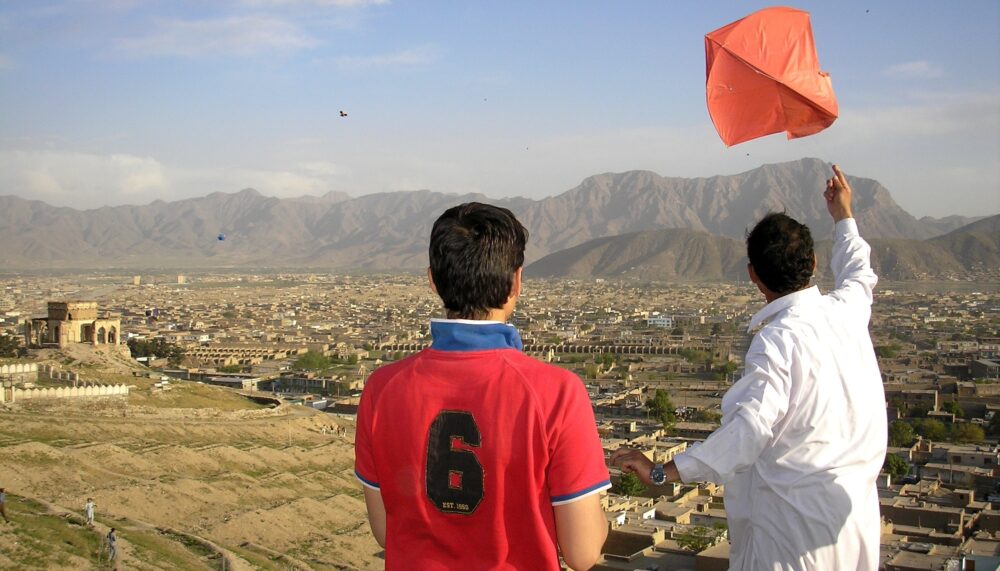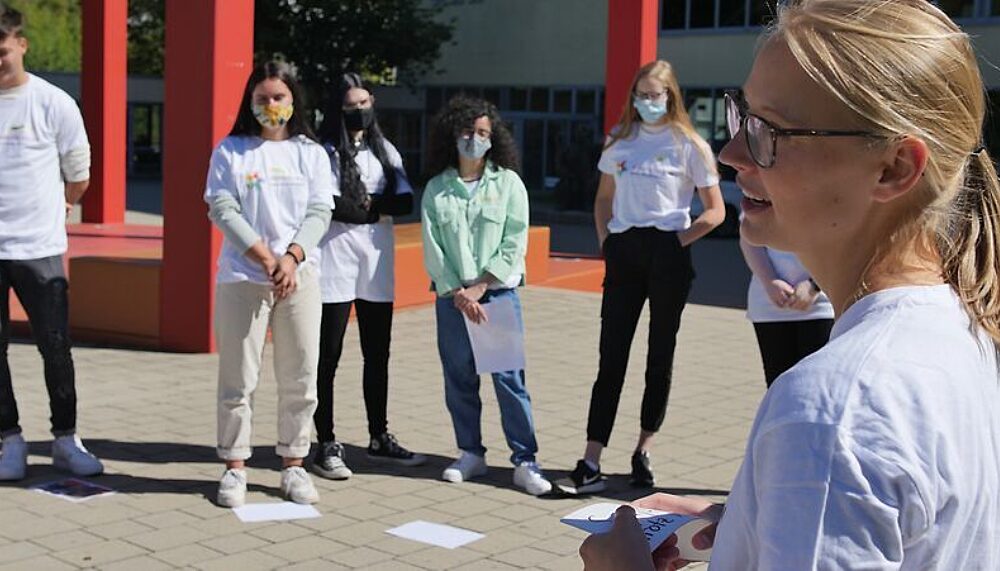BLOG POST | 7 Apr 2022
“It would be a terrible mistake to forget about the major crises around the world.”

Despite the focus on the war in Ukraine, Europe should not divert its attention from the crises in Afghanistan, Ethiopia and Yemen.
By Andrew Gilmour
This article was originally published on 7 April 2022 by the German newspaper Der Freitag as opinion piece (in German): https://www.freitag.de/autoren...
President Zelensky could not have been clearer. “The world has to talk with Putin,” he said on 3 March. “There is no other way to stop this war.” We should pay attention. Despite our fury over the unprovoked aggression, the bombings, the suffering, and the grotesque lies; and despite the understandable desire to bolster our military security in face of the Russian threat, Germany and other NATO states should still be prioritising negotiations.
The last thing many people feel like supporting right now is dialogue with a government that is committing such atrocities. Yet, there is no conceivable way this nightmare for the Ukrainian people can end without talks. It may be comforting to take refuge in emphasising “hard” security that we luckily have the means to fund, but there is nothing “soft” about negotiating to put an end to calamitous warfare and the threat of annihilation.
Negotiated solutions are massively cheaper than military non-solutions. But even they are not cost-free, and require investment. If just 1% of the 100 billion Euros that is being allocated to Germany’s defence investments was to be allocated to peace efforts, this would be a significant contributor to security and stability – both in Europe and beyond.
We must learn from the past. After 9/11, a crisis of almost comparable scale to Ukraine, some countries including the US and Britain diverted their attention from many issues to focus excessively on Afghanistan, Iraq, and the fatuously-titled “War on Terror”. This did not end well.
Despite the magnitude of the Russian threat and the needed response, it would be a terrible mistake to now remove all focus from major crises elsewhere. The UN has recently had to launch some of the largest humanitarian appeals in its history for Afghanistan, Ethiopia and Yemen. All three are related to the wars that have raged in these countries, and there is an urgent need to ramp up diplomatic work to resolve them. Germany has been among the most generous contributors both to the international relief effort and to mediation and peace-building activities in all three countries and it is important that this continues.
But if, as a result, Germany and other countries of Europe were to ignore the horrifying crises taking place outside the continent, it would merely compound the challenge that is posed both to our values and to our interests by the monstrous assault on Ukraine.
Andrew Gilmour, Executive Director Berghof Foundation
But whereas in Yemen and Ethiopia, the cause of the famines relates to the activities of the warring parties, in Afghanistan it is something different.
There, the current driver both of likely renewed conflict and impending humanitarian catastrophe is the policy of Western governments. When the Taliban swept to victory last August, humiliating those countries that had provided tens of billions of Euros of support to the previous government of Afghanistan, the response of those Western countries has since been to 1) cut off direct financial support, on which Afghanistan governance and social services depend; 2) impose devastating sanctions that prevent most economic activity; 3) and even, in the case of the US, to attempt to steal the remaining few billion dollars of reserves owned by Afghanistan.

It does not take much to figure out what the results could be. If the US and its European allies do not change course and prevent state collapse caused by their own policies, there is a real danger that widespread conflict in Afghanistan could start again, accompanied by a famine that the UN estimates could put a million children into starvation in the coming months, and several million Afghans needing to flee their country westwards.
Another conflict that merits intensified attention relates to Ethiopia. With a population of 110 million, this country has undergone a devastating war for the past 16 months, killing up thousands of people and creating a humanitarian disaster. Although in recent weeks there have been some encouraging political developments – to which the international community, including Germany, has contributed – maximum efforts need to be exerted to prevent a new upsurge of violence whose impact will spread way beyond the East African region.
The Middle East remains host to numerous conflicts and economic fragility including in Yemen, Syria, Lebanon, and Libya. At the UN-organised high-level pledge conference for Yemen in mid-March, the country only received a third of the hoped-for donation amount, despite the ongoing humanitarian crisis, further exacerbated by the war in Ukraine and rising gas prices. There is both a moral and a self-interested imperative in working to resolve such crises, and provide humanitarian assistance. Berlin has contributed large amounts – both financially and politically – to do that, including by supporting organisations which work on conflict transformation in all those places.
The current threat to European security – higher than at any time since the Berlin Airlift of 1948 – of course requires a major diversion of available funds and political attention. But if, as a result, Germany and others countries of Europe were to ignore the horrifying crises taking place outside the continent, it would merely compound the challenge that is posed both to our values and to our interests by the monstrous assault on Ukraine.
Media contact
You can reach the press team at:
+49 (0) 177 7052758
email hidden; JavaScript is required


